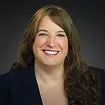The Committee on Rules of Practice and Procedure unanimously approved several amendments on June 7, 2022, to clarify Federal Rule of Evidence 702—the federal standard for admissibility of expert testimony. See Daubert v. Merrell Dow Pharms., Inc., 509 U.S. 579, 588 (1993). The amendments (1) clarify that the proponent's burden for admissibility is a preponderance of the evidence, and (2) emphasize the court's duty, through trial, to ensure the expert's opinions/conclusions, not just methods, are reliable. These changes are in response to findings that federal courts too often fail to apply the preponderance standard and prevent experts from overstating their conclusions. Pending approval by the Judicial Conference, the Supreme Court and Congress, the amendments will take effect on December 1, 2023.
The Rule 702 Opening Statement Amendment
If amended, the below underlined language will be added to Rule 702's opening statement:
A witness who is qualified as an expert by knowledge, skill, experience, training, or education may testify in the form of an opinion or otherwise if the proponent has demonstrated by a preponderance of the evidence that . . . .
In Daubert, the Court noted that under Rule 104(a) and Bourjaily v. United States, 483 U.S. 171, 175-76 (1987), questions of admissibility, including expert testimony, should be established by a preponderance of proof. See Daubert, 509 U.S. at 592 n.10. But, in "a number of federal cases . . . judges did not apply the preponderance standard of admissibility to [Rule 702's] requirements of sufficiency of basis and reliable application of principles and methods, instead holding that such issues were ones of weight for the jury." Advisory Comm. on Evid. Rules, Agenda for Committee Meeting, 17 (Apr. 30, 2021). In fact, between 2015 and 2021, nearly 300 federal decisions claimed that questions related to the sources and bases of an expert's testimony go to credibility/weight, not admissibility. See Lawyers for Civil Justice, Comment to the Advisory Committee on Evidence Rules, 2-3 (Sept. 1, 2021) (citing, e.g., Joseph v. Doe, No. 17-5051, 2021 U.S. Dist. LEXIS 106083, at *15-16 (E.D. La. June 7, 2021) ("Any questions relating to the bases and sources of his opinion affect the weight of the evidence rather than its admissibility and should be left for the finder of fact.")).
To prevent further error, this amendment clarifies that the proponent must demonstrate by a preponderance of evidence that Rule 702's reliability requirements are met. Whether the expert relied on sufficient facts or data and reliably applied sound methods are questions of admissibility, not credibility/weight of the evidence. See Advisory Comm. on Evid. Rules, Report of the Advisory Committee on Evidence Rules, 6 (May 15, 2022). Importantly, proponents "do not have to demonstrate to the judge by a preponderance of the evidence that the assessments of their experts are correct, they only have to demonstrate by a preponderance of evidence that their opinions are reliable. . . ." In re Paoli R.R. Yard PCB Litig., 35 F.3d 717, 744 (3d Cir. 1994) (emphasis in original).
Also, by noting that the proponent must prove reliability by a preponderance of the evidence, the amendment debunks the "presumption of admissibility" for expert testimony (see Report of the Advisory Committee on Evidence Rules, 6 (May 15, 2022)) that some courts erroneously assert. See, e.g., Cates v. Trs. of Columbia Univ., 16 Civ. 6524, 2020 U.S. Dist. LEXIS 55409, at *18 (S.D.N.Y. Mar. 30, 2020) ("There is a presumption that expert testimony is admissible . . . ." (citing Borawick v. Shay, 68 F.3d 597, 610 (2d Cir. 1995)); Price v. General Motors, LLC, No. CIV-17-156-R, 2018 U.S. Dist. LEXIS 239984, at *2 (W.D. Okla. Oct. 3, 2018) ("[T]here is a presumption under the Rules that expert testimony is admissible." (quotation marks omitted)).
The Rule 702(d) Amendment
The proposed amendment to Rule 702(d) will focus the court's attention on the expert's opinion, not just their application of principles and methods:
d) the expert has reliably applied expert's opinion reflects a reliable application of the principles and methods to the facts of the case.
This is also not new law. See General Electric Co., v. Joiner, 522 U.S. 136, 146 (1997) ("[C]onclusions and methodology are not entirely distinct from one another . . . nothing in either Daubert or the Federal Rules of Evidence requires a district court to admit opinion evidence that is connected to existing data only by the ipse dixit of the expert."). But, the change will help curtail experts from overstating their opinions, i.e., exceeding the bounds of what can be concluded from a reliable application of the expert's basis and methodology. Just as jurors may lack special knowledge to evaluate the reliability of an expert's methods, they may be unable to assess if an expert's conclusions reasonably follow.
Additionally, the change from "has reliably applied" (past tense) to "opinion reflects a reliable application" (ongoing) emphasizes that the gatekeeping function continues even after an initial finding of admissibility. See id. at 1039, (attaching Advisory Comm. on Evid. Rules, Draft Minutes of May 6, 2022 Meeting, 8 ("The Reporter explained that this was the purpose of the amendment to Rule 702(d) – to emphasize the trial judge's ongoing obligation to prevent an admitted expert from testifying to unsupported overstatements like a zero error rate." (quotation marks omitted))).
Impact and Recommendation
Although the amendments may not take effect until December 1, 2023, they have already been cited to correct a misapplication of Rule 702. In Sardis v. Overhead Door Corp., 10 F.4th 268 (4th Cir. 2021), the Fourth Circuit cited the proposed amendments and quoted the Advisory Committee's findings before reversing an order that denied a defendant's motion to exclude expert testimony. See id. at 283-84, 296-300 (holding the trial court abused its discretion and committed reversible legal error by abdicating its gatekeeping function under Rule 702). The court agreed that lower courts' failure to apply the proponent's preponderance standard is a "pervasive problem," in contravention of Rule 702 and Daubert, which the proposed amendments will address. See id. at 284 (quoting Advisory Comm. on Evidence Rules, Agenda for Committee Meeting, 18 (Apr. 30, 2021) (quotation marks omitted)).
To avoid the misapplications of Rule 702 that caused the instant amendments, parties planning expert challenges should emphasize the following in their arguments:
- there is no presumption of admissibility for expert testimony;
- the proponent must satisfy the reliability requirements by a preponderance of the evidence under Rule 104(a);
- the sufficiency of an expert's factual basis and reliability of its methods are admissibility, not credibility, questions; and
- the expert's opinions/conclusions must remain within the bounds of a reliable application of their methods.
As the Advisory Committee observed, the above points are existing law but often lost on trial courts, leading to erroneous outcomes that can have costly effects in complex litigation. By emphasizing these long-recognized aspects of Rule 702, parties will gain credibility, minimize incorrect rulings, and preserve good arguments for appeal.
The content of this article is intended to provide a general guide to the subject matter. Specialist advice should be sought about your specific circumstances.




